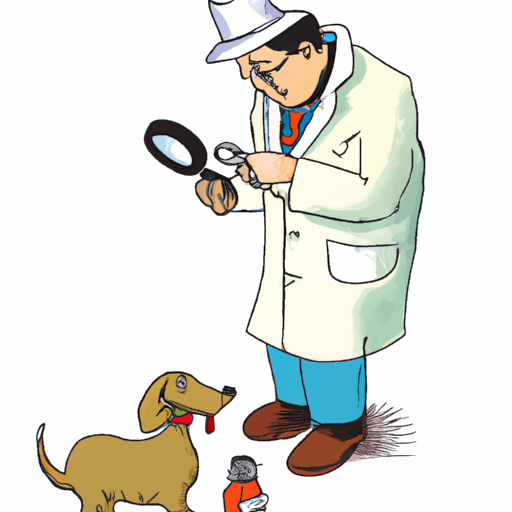Understanding Hookworms
First off, let’s clear the air on what hookworms really are. Hookworms are tiny, parasitic worms that can infest your dog’s intestines. They are generally contracted through ingestion of contaminated soil or feces, through the skin, or from mother to puppy during nursing. The infestation can cause severe anemia, weight loss, and other health complications.
Detecting Hookworms in Your Dog
Detecting hookworms in your dog might be tricky due to the lack of specific symptoms. However, there are yet a few signs you can look out for:
- Diarrhea or constipation
- Blood in the stool
- Weight loss
- Lack of energy or lethargy
- Pale gums
Remember, if your dog exhibits any of these symptoms, it’s best to consult with your veterinarian immediately.
Treating Hookworms
The good news is, hookworms are treatable. Upon confirmation of infestation, your vet will likely prescribe a deworming medication. This is typically administered in two doses: the first to kill the adult hookworms and the second, after two weeks, to eliminate the remaining larvae.
Treatment options include:
- Fenbendazole
- Mebendazole
- Pyrantel Pamoate
- Ivermectin
Ensure to follow your vet’s instructions closely when administering medication.
Preventing Hookworms in the Future
Preventing hookworms is essential, not just for the health of your dog, but also for your own. Hookworms can be zoonotic, meaning they can be passed from animals to humans. Here are some tips for prevention:
- Keep your dog’s living area clean and free from feces.
- Regularly deworm your dog, especially puppies and nursing mothers.
- Use preventatives, as recommended by your vet.
- Avoid walking your dog in areas known to be infested with hookworms.
FAQ about Hookworms in Dogs
Q: Can humans get hookworms from dogs?
A: Yes, hookworms are zoonotic and can be passed from dogs to humans, although it’s rare.
Q: How long does it take for the hookworm treatment to work?
A: Most dogs show improvement within a few days after beginning treatment.
Q: Can I prevent hookworms without using medication?
A: While some natural methods may help, the most effective prevention is regular deworming and cleanliness.
Remember, your dog’s health is vital, and as a caregiver, your role is paramount. Be vigilant, keep your environment clean, and always consult with your vet at the first sign of trouble.



